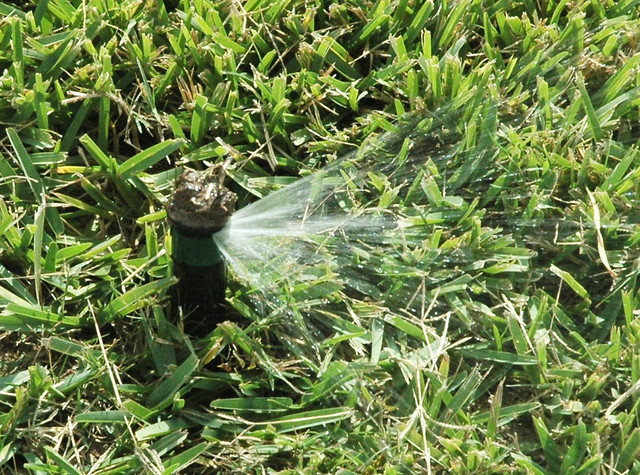Texas Attorney General, Ken Paxton, recently issued an opinion regarding the ability of a Texas Groundwater Conservation District to limit the definition of “agricultural crop” under its rules. [Read full opinion here.] Although not binding on a court, this opinion could potentially impact GCDs and producers around the state.
Background
Senator Bob Hall, Chair of the Texas Senate Committee on Agriculture requested an opinion from Texas Attorney General Ken Paxton on an interesting legal question. Specifically, Senator Hall wanted to know how the Attorney General thought a court would rule regarding a definition used by the Mid-East Texas Groundwater Conservation District, which governs groundwater in Madison, Leon, and Freestone Counties.
Texas Special Districts Code Section 8866.151 allows GCDs to impose reasonable fees on wells for which permits have been issued. These fees are capped at 25 cents per acre-foot for wells used to irrigate “agricultural crops” and 17 cents per thousand gallons for water used for any other purpose. (Just for reference, 17 center per thousand gallons is equivalent to about $55/acre foot). Neither Chapter 36 of the Texas Water Code, nor Section 8866 of the Special Districts Code, both of which apply to GCDs, define the term “agricultural crop.”
In its regulations, the Mid-East Texas GCD defines an “agricultural crop” to be “food or fiber commodities grown for resale of commercial purposes that provide food, clothing, or animal feed.” This limited definition would exclude other irrigated crops, subjecting those excluded crops to the higher fee. A turf farm owner within the Mid-East GCD jurisdiction objected to this definition and argued that turf should be considered an “agricultural crop” and should be charged the lower fee.

Thus, the question posed by Senator Hall was as follows, “whether a groundwater conservation district has the authority to define, by rule, an ‘agricultural crop’ as ‘food or fiber commodities grown for resale of commercial purposes that provide food, clothing, or animal feed’ and utilize that definition to determine the applicable fee rate for ‘irrigating agricultural crops.'”
AG Opinion
Recognizing there was no definition of this term in Chapter 36 of the Water Code or Section 8866 of the Special Districts Code, the Attorney General applied the general rule announced by the Texas Supreme Court, “terms that are not otherwise defined are typically given their ordinary meaning.” With this guiding principle, the AG looked to dictionary definition of both “agriculture” and “crops” and noted the broad nature of each term. “Thus, from the ordinary meaning of the words, an ‘agricultural crop’ may include a wide variety of products,” said the AG.
Additionally, the AG looked to the statutory definitions of the term “agriculture” in Chapter 36 of the Texas Water Code. Section 36.001(19) defines “agriculture” broadly, including the clauses relevant here, “the practice of floriculture, viticulture, silviculture, and horticulture, including the cultivation of plants in containers or nonsoil media, by a nursery grower” and “planting cover crops, including cover crops cultivated fro transplantation.” Further, “nursery grower” engages in “the actual cultivation or propagation of a product” which “typically includes activities associated with the production or multiplying of stock such as the development of new plants fro cuttings, grafts, plugs, or seedlings.” Additionally, the term “agricultural use” is defined as “any use or activity involving agriculture, including irrigation” under the Water Code.
Based on the information above, the AG determined that the Mid-East Texas GCD’s limited definition conflicts with the Water Code and that Section 8866.151 does not allow a district to chose which agricultural uses will receive the lower statutory rate by drafting a more narrow definition than included in the Water Code. “Therefore, a court would likely conclude that a groundwater conservation district does not have the authority to define ‘agricultural crop” in the manner done by Mid-East Texas GCD.
Conclusion
Again, an AG’s Opinion is not binding on a court, but it does provide the an opinion of how Attorney General Paxton believes a court would rule on this issue. If other GCDs in Texas have also passed rules including narrow definitions of “agricultural crop,” this opinion may encourage GCDs to review and revise their definitions. For agricultural producers of products that may not fall within a narrowly drafted GCD definition, this opinion may give them support in an argument to seek imposition of the far lower fee for agricultural crops.
To determine if you are located within a Groundwater Conservation District, click here. To learn more about GCDs and Texas Groundwater Law, click here.












